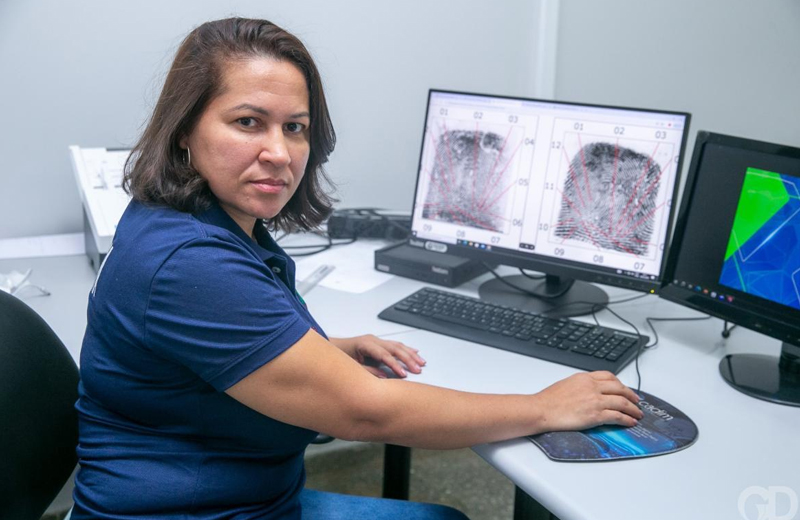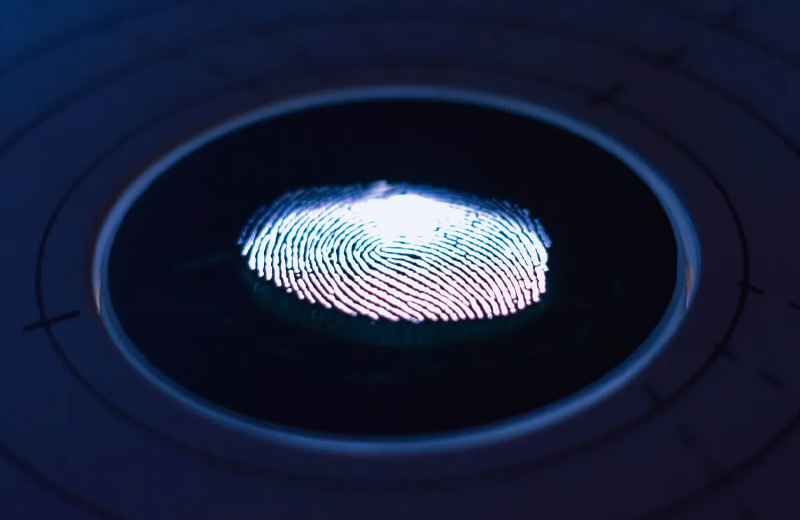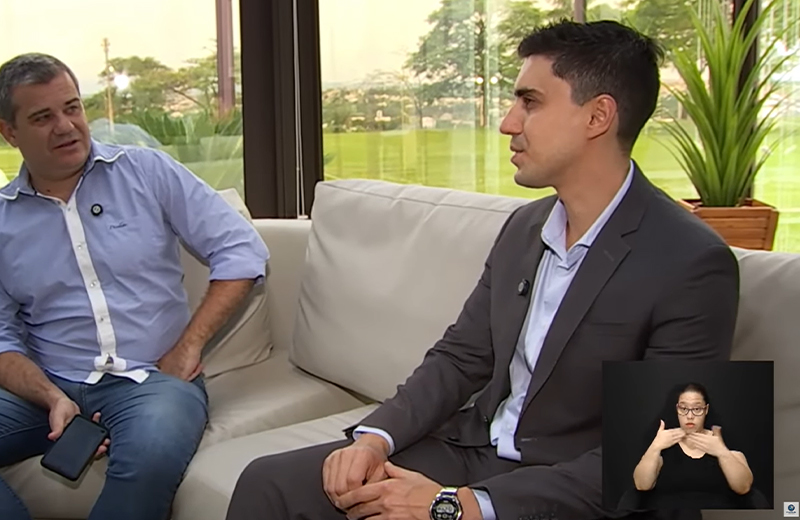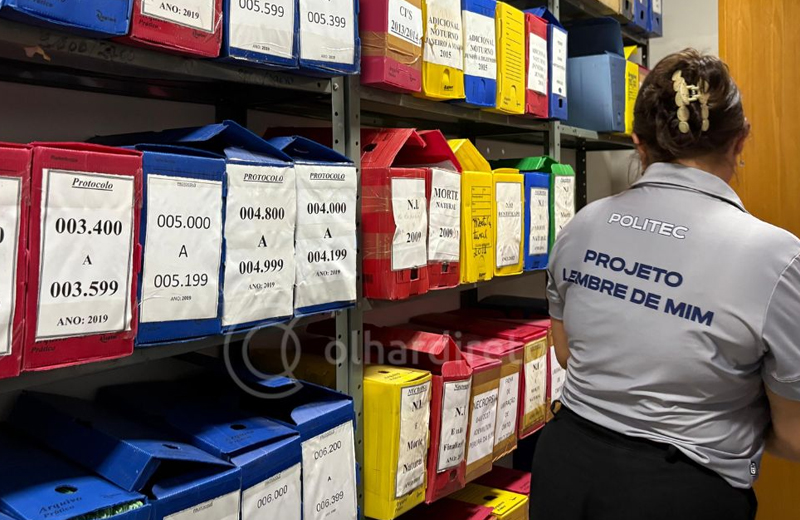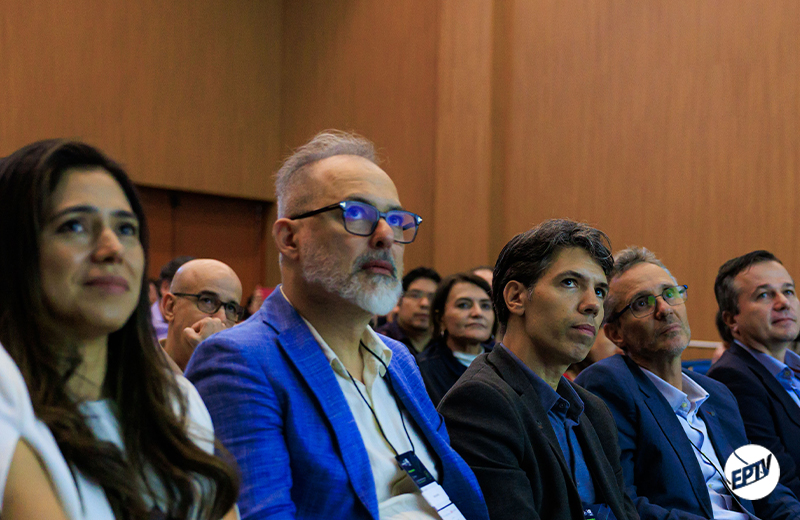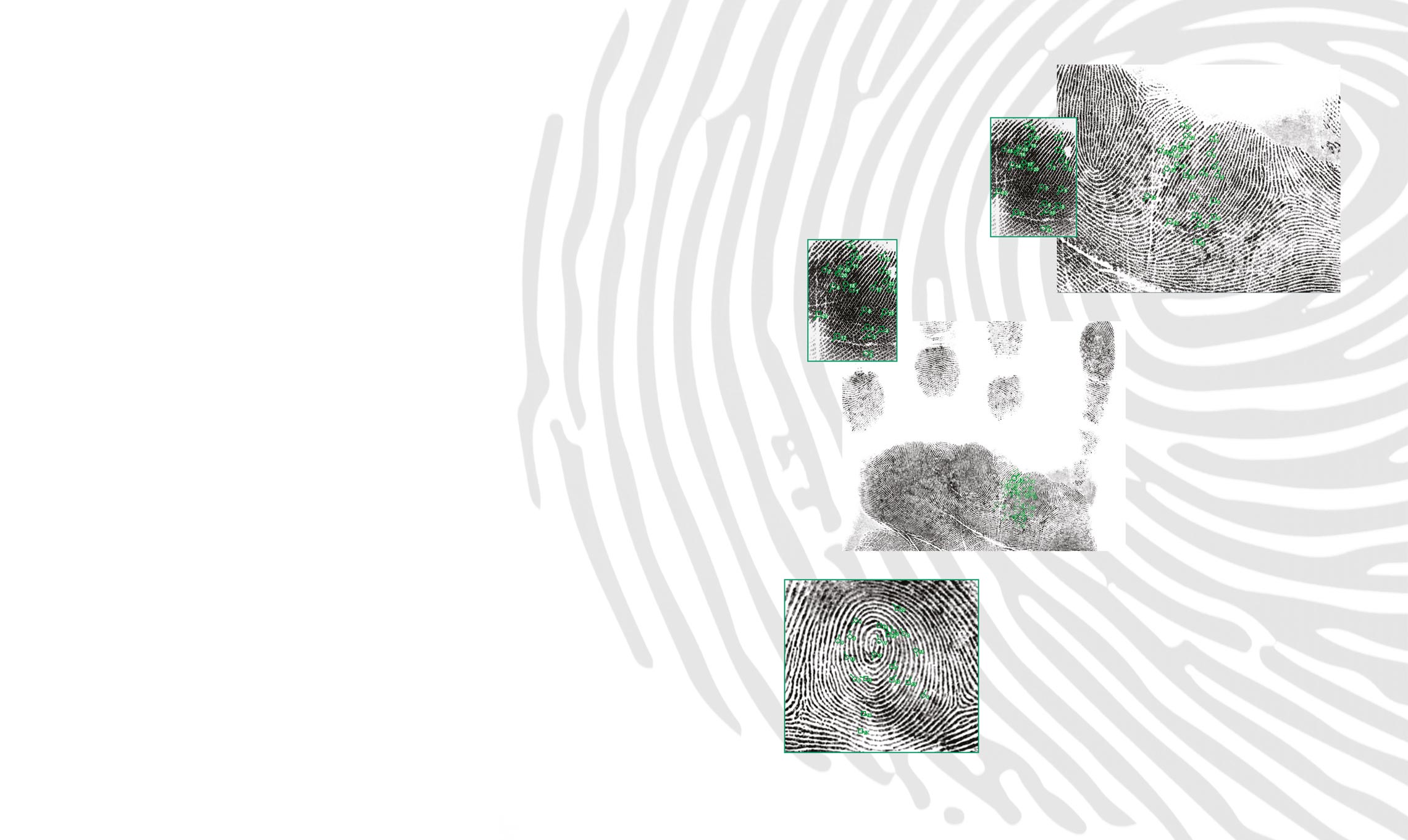
Fingerprints and palm prints: the green dots are called minutiae. Together, they individualize each person's marks
Based in Campinas, in the interior of the state of São Paulo, Griaule, the supplier of the biometric solution that guarantees the uniqueness of Electoral Justice data, has won two important tenders in the United States in recent months. In September, the company, which was born at the State University of Campinas (Unicamp) and received support from FAPESP, was chosen by the Department of Defense (DoD) to be the supplier of an identification system for storing and certifying the biometric data of 55 million citizens in Iraq and another 30 million in Afghanistan. The following month, the Arizona Department of Public Safety chose FAPESP's biometric technology to assist police investigations and criminal background checks on public officials.
Biometric systems such as those developed by Griaule recognize people by unique characteristics of their body, such as their fingerprint, face design or iris shape(see Pesquisa FAPESP issue no. 255 ). Already in force, the contract with the DoD, better known as the Pentagon, its headquarters, is worth 75 million dollars and will run for five years, which can be extended. The United States has participated in wars in Iraq and Afghanistan and is currently working with the local authorities on reconstruction activities, which explains why Washington is the contractor for the service.
One of the country's leading developers of biometric solutions, Griaule took part in the Pentagon's competition in a team made up of six other companies, all American - the technology supplied, however, is 100% Brazilian, according to the company. The consortium was headed by a joint venture called RS3, whose leader, EIS, is already a supplier of engineering services and technological solutions to the US federal government.
"Seeing a company with Brazilian DNA win international tenders to provide cutting-edge solutions is a source of pride. It serves to put Brazil on the map of important creators of global solutions in biometrics," says computer scientist Anderson Rocha, a professor at Unicamp's Institute of Computing. "Being chosen by the Pentagon shows that the company has an innovative edge to its products. Griaule was able to convince senior DoD officials that it was worth working with. This is very good for Brazil and especially for the national software industry."
Multimodal platform
The technological solution chosen by the DoD, an agency with ministry status, was the Griaule Biometric Suite (GBS), a multimodal software package capable of handling fingerprints and palm prints, voice, facial and eye iris images to identify individuals. GBS enables both the collection of biometrics and their storage in databases. The contract provides for the sale of two systems to the US government, which will pass them on to allied countries. "Today, Iraq and Afghanistan already have biometric identification systems, which are outdated. We're going to replace them and expand their functionality," says Renato Burdin, Griaule's operations manager.
According to him, the system will be used both for civil identification - in border control and in issuing documents to Iraqi and Afghan citizens - and in criminal investigations. For this reason, the software will be able to recognize fragments of fingerprints and palms at crime scenes, the so-called latent prints. "GBS is designed to be multimodal. I think this is the project that will use the most biometric varieties at the same time," says Burdin.
The company created the software responsible for storing, validating and authenticating the biometric data of Brazilian voters
The contract with the Pentagon foresees that Griaule will use the existing national database in both countries, allowing for the continuous aggregation of new biometric information. "In the first year, we will migrate the current system to GBS. From then on, we will provide technical support and maintenance to customers," explains Burdin, noting that Griaule's system has already obtained dozens of national and international certifications, 20 of which have been issued by the Federal Bureau of Investigation (FBI), the US federal police.
In Arizona, in a $7.5 million deal, the technology will also be used for civil and criminal purposes. "It's important to note that the GBS platform can be used by the most diverse state organizations and will communicate with federal systems," says Burdin. Prior to these two contracts, the company had already sold its biometric technology to the Michigan State Police, in the north of the United States.
Fostering research
Created in 2002 by electrical engineer Iron Calil Daher, Griaule spent its first three years housed in Unicamp's business incubator. Its proximity to the university allowed it to attract young talent to join its team. The initial group of five people was multiplied by seven and today there are around 35 employees, 20 of them graduates and four with doctorates or specializations. The research and development (R&D) team, responsible for the solutions created by the company, is made up of 20 people, most of whom have degrees in engineering and computer science.
The company earned R$16 million in 2017, a significant leap from the R$100,000 it earned in 2005 when it left the incubator. The support of development agencies such as FAPESP and the Financier of Studies and Projects (Finep) was fundamental to consolidating the business. The fingerprint identification system is its main product. The company also develops recognition software for voice, iris, face and palm, as well as latent prints.
Throughout its history, Griaule has received three grants from FAPESP's Innovative Research in Small Businesses (PIPE) program, the first in 2003 to improve its automatic fingerprint identification system. In 2005, the funds were used to develop a technology for recognizing human faces, and in 2007 to create a new voice identification system. "Without FAPESP's financial support, we wouldn't have reached this point," says Iron Daher, the company's CEO.
It didn't take long for the quality of the products to be recognized. In 2005, Griaule won the Finep Award for Technological Innovation in the category of Small Companies in the Southeast Region and, the following year, it gained international prestige by taking first place in the Fingerprint Verification Competition (FVC 2006) for developing the fingerprint identification algorithm with the lowest error rate, standing out among 150 competitors. Following the award, in 2007 Griaule opened a commercial office in Mountain View, California, United States, and began exporting its products to the country. It recently moved its operation to Morgantown, West Virginia, to support sales and the local market.
Despite this recognition, the company only saw significant growth in its turnover in 2014, when it signed a contract with the Superior Electoral Court (TSE). That year, the body commissioned software to store, validate and authenticate voters' biometric data, allowing citizens to identify themselves when they vote by placing their finger on a fingerprint reader connected to the electronic ballot box, a more secure system that is less prone to fraud. In this year's elections, more than 2,800 municipalities used biometrics to recognize voters. According to the TSE, more than 87 million Brazilians registered their fingerprints.
Setting up a database of this size poses challenges, because the larger the register, the more processing is required to include new voters. This is because the computers involved in the operation have to do a complete scan of the records to avoid duplicating the register. The task is made even more complex by the fact that each voter's 10 fingerprints are collected, forcing the recognition software to process a huge amount of data.
Griaule currently sells its products to 4,000 customers in 80 countries. Brazil is the main market, accounting for 95% of sales in 2017, followed by the United States. In addition to the TSE, the company also supplies its biometric platform in the country to Caixa Econômica Federal, which has implemented the tool in its service units and in the control of the payment transfer system for the federal government's Bolsa Família program, and to Fundação Casa, a São Paulo authority that uses the technology to identify children and adolescents who arrive at the institution without an identity document. Abroad, GBS is used in Israel to issue national documents with biometrics, and by Sure Bank in South Africa, which has implemented the fingerprint recognition system in its ATM network. The company expects that the contracts signed in recent months in the United States will help spread the word about the technology and open up new markets, expanding the sale of its products to customers abroad.
This excerpt is part of the full content published by Revista Pesquisa Fapesp on January 1, 2019, available at this link.

